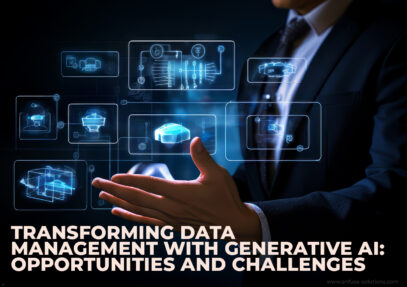
Tableau’s recent research has revealed a discrepancy in contemporary enterprises. While 83% of CEOs advocate for a data-driven corporate culture, only 33% of executives possess proficiency in analyzing essential KPIs and metrics. This incongruity underscores the importance of organizations to harness the power of real-time analytics.
This blog will examine the concept of real-time analytics, its applications across industries, effective implementation practices, and future trends influencing its evolution.
What Is Real-Time Analytics?
The process of doing real-time analytics means looking at and understanding data right as it’s being created, which helps companies gain important insights and make smart decisions. It includes always taking in, processing, and examining flows of information to give an updated picture of what is happening now.
The traditional way to do batch processing is by gathering data for a certain period, keeping it in a storage system, and then analyzing it at set times. But this method can cause delays in getting important information, which might not be as useful because it’s old when you finally get it.
Benefits of Real-Time Analytics:
- Prompt Response: With swift access to current data, enterprises can promptly respond to circumstances and prospects. For example, in the stock market, real-time analytics enables financial establishments to make educated trading determinations in the present.
- Enhanced Agility: Any organization must possess the capacity to adjust and conform to fluctuating market dynamics, customer actions, and operational obstacles. By utilizing real-time analytics, businesses can swiftly adapt and modify their approaches on the spot.
- Customer Satisfaction: Enhancing customer satisfaction greatly relies on being highly responsive. The use of real-time analytics aids in the quick identification and resolution of customer concerns, enabling businesses to promptly address them and elevate overall customer satisfaction.
Applications Of Real-Time Analytics Across Industries
1. Supply Chain Management
Large eCommerce giants such as Amazon or Walmart use real-time data analysis to keep an eye on their warehouse and distribution networks. This helps them maintain proper stock levels (avoiding too much or too little) while also preventing surplus inventory situations. For example, companies such as FedEx and UPS use real-time analytics to manage shipments. They can watch over shipping progress, find the best routes for delivery trucks, and anticipate when packages will arrive at their destination accurately through this method of data analysis.
2. Finance
For finance, analytics that happens in real-time are crucial for spotting fraud, handling trades and risks, as well as algorithmic trading. Financial institutions could monitor dealings and detect abnormalities or possible fraud. They can also react swiftly to minimize dangers. Analyzing market data along with news updates and social media sentiment offers essential information to make educated choices about managing risk.
3. Manufacturing
The manufacturing industry enjoys real-time data analysis for process optimization, predictive maintenance, and yield supervision. Manufacturers can spot problems, improve processes, and enhance overall efficiency by analyzing fresh data from production lines, machinery, and quality control systems. Real-time analytics also allows monitoring of equipment performance as well as predicting possible breakdowns to aid in proactive maintenance.
4. Marketing
In marketing, real-time analytics is very important for campaign optimization, personalization, and social media monitoring. For example, companies such as Netflix use real-time analytics to keep track of how their campaigns are doing across many different channels. This lets them make changes in strategies or methods which could lead to better results. The aspect of personalization benefits from the use of customer data and browsing behaviors to give specific recommendations and content.
5. Customer Service
Real-time analytics, especially sentiment analysis, helps customer service in improving chatbot performance, virtual assistant refinement, and call center enhancement. When customer interactions get analyzed right away, it assists in identifying the sentiment and managing time-sensitive or negative experiences more effectively for boosting overall satisfaction.
Best Practices And Future Trends
1. Building A Data-Driven Culture And Cross-Functional Collaboration
To successfully implement real-time analytics, organizations need to shift culturally. They must foster a data-driven culture where decision-making is driven by insights derived from real-time data analysis. For example, they need to break down silos and encourage cooperation between teams like IT, data analysis, operations, and business sections. Moreover, as stated by McKinsey, companies that make use of data are 23 times more likely to lead in customer gaining, about 19 times more likely to stay profitable, and close to 7 times more likely to keep customers.
2. Leveraging Cloud Computing And Edge Computing For Real-Time Analytics
Cloud computing has transformed the storage, computation, and analysis of data by allowing organizations to scale their real-time analytics abilities as required. Platforms based on the cloud furnish adjusting computing power, storage capacity, and modern analytics instruments, permitting companies to handle big data amounts quickly and do real-time analyses without demanding extensive in-house infrastructure.
3. Democratizing Real-Time Analytics Through User-Centric Interfaces
For the most benefit from real-time analytics, organizations must make data and understanding available to a wider group of users than just data scientists and analysts. This could happen by creating interfaces and easy dashboards for users, showing real-time information in an attractive visual way with good instinctive design. Self-service analytics tools together with NLP interfaces can give more power to business users to explore data and gain insight without needing much technical expertise.
4. Emerging Technologies And Future Possibilities (E.g., 5G, Edge Computing, IoT)
Real-time analytics in the future is deeply connected with new technologies like 5G, edge computing, and the IoT. The upcoming 5G networks will result in quicker data transfer speeds plus lower latency; this allows for improved real-time transmission and analysis of data. Edge computing, together with devices from IoT, can help in processing at the edge for decisions made right away. This reduces reliance on transferring data to central systems and helps achieve faster response times.
5. Continuous Learning And Adaptation With Machine Learning Models
With the increasing size and intricacy of data, ML models will have a significant function in instant analytics. These models can learn constantly from incoming data streams, changing and enhancing their forecasting as well as decision-making qualities over time. This shows that organizations can get more precise and useful understandings from real-time data, helping them make decisions ahead of time and react better to alterations.
Conclusion
In this era characterized by an abundance of data and constant digital disruption, the critical skill for organizations to possess is the ability to utilize up-to-the-minute analytics to maintain competitiveness and adaptability in rapidly changing market conditions. By bridging the divide between executive ambitions and operational limitations, enterprises can unleash the complete potential of real-time analytics to stimulate progress and expansion.
Empower your business with data-driven decisions. EnFuse offers comprehensive digital analytics services, including market research, social media analytics, and campaign analysis. Our solutions ensure accurate insights aligned with your goals. Take the first step towards a data-driven future. Contact us today to unlock the transformative potential of your data.

















Comment